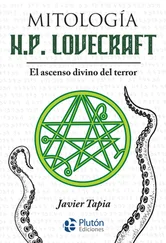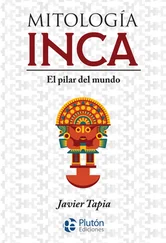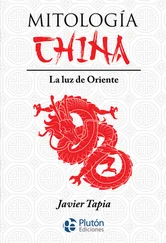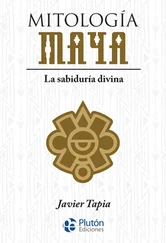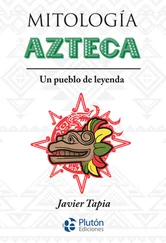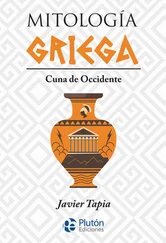“Yeah, but to help the Turks—“
“The U.S. isn’t helping the Turks,” Milton went on. “They just don’t want the Junta to get out of hand.”
In 1922, while Smyrna burned, American warships sat idly by. Fifty-two years later, off the coast of Cyprus, they also did nothing. At least ostensibly.
“Don’t be so naïve, Milt,” Jimmy Fioretos again. “Who do you think’s jamming the radar? It’s the Americans, Milt. It’s us.”
“How do you know?” my father challenged.
And now Gus Panos through the hole in his throat: “It’s that goddamned—sssss—Kissinger. He must have—ssssss—made a deal with the Turks.”
“Of course he did.” Peter Tatakis nodded, sipping his Pepsi. “Now that the Vietnam crisis is over, Herr Doktor Kissinger can get back to playing Bismarck. He would like to see NATO bases in Turkey? This is his way to get them.”
Were these accusations true? I can’t say for sure. All I know is this: on that morning, somebody jammed the Cypriot radar, guaranteeing the success of the Turkish invasion. Did the Turks possess such technology? No. Did the U.S. warships? Yes. But this isn’t something you can prove . . .
Plus, it didn’t matter to me, anyway. The men cursed, and shook their fingers at the television and pounded the radio, until Aunt Zo unplugged them. Unfortunately, she couldn’t unplug the men. All through dinner the men shouted at each other. Knives and forks waved in the air. The argument over Cyprus lasted for weeks and would finally put an end to those Sunday dinners once and for all. But as for myself, the invasion had only one meaning.
As soon as I could, I excused myself and ran off to call the Object. “Guess what?” I cried out with excitement. “We’re not going on vacation. There’s a war!”
Then I told her I had cramps and that I’d be right over.
I’m quickly approaching the moment of discovery: of myself by myself, which was something I knew all along and yet didn’t know; and the discovery by poor, half-blind Dr. Philobosian of what he’d failed to notice at my birth and continued to miss during every annual physical thereafter; and the discovery by my parents of what kind of child they’d given birth to (answer: the same child, only different); and finally, the discovery of the mutated gene that had lain buried in our bloodline for two hundred and fifty years, biding its time, waiting for Atatürk to attack, for Hajienestis to turn into glass, for a clarinet to play seductively out a back window, until, coming together with its recessive twin, it started the chain of events that led up to me, here, writing in Berlin.
That summer—while the President’s lies were also getting more elaborate—I started faking my period. With Nixonian cunning, Calliope unwrapped and flushed away a flotilla of unused Tampax. I feigned symptoms from headache to fatigue. I did cramps the way Meryl Streep did accents. There was the twinge, the dull ache, the sucker punch that made me curl up on my bed. My cycle, though imaginary, was rigorously charted on my desk calendar. I used the catacomb fish symbol

to mark the days. I scheduled my periods right through December, by which time I was certain my real menarche would have finally arrived.
My deception worked. It calmed my mother’s anxieties and somehow even my own. I felt I’d taken charge of things. I wasn’t at the mercy of nature anymore. Even better, with our trip to Bursa canceled—as well as my appointment with Dr. Bauer—I was free to accept the Object’s invitation to visit her family’s summer house. In preparation I bought a sun hat, sandals, and a pair of rustic overalls.
I wasn’t particularly tuned in to the political events unfolding in the nation that summer. But it was impossible to miss what was going on. My father’s identification with Nixon only grew stronger as the President’s troubles mounted. In the long-haired war protesters Milton saw his own shaggy, condemnatory son. Now, in the Watergate scandal, my father recognized his own dubious behavior during the riots. He thought the break-in was a mistake, but also believed that it was no big deal. “You don’t think the Democrats aren’t doing the same thing?” Milton asked the Sunday debaters. “The liberals just want to stick it to him. So they’re playing pious.” Watching the evening news, Milton delivered a running commentary to the screen. “Oh yeah?” he’d say. “Bullshit.” Or: “This guy Proxmire’s a total zero.” Or: “What these pointy-headed intellectuals should be worrying about is foreign policy. What to do about the goddamn Russians and the Red Chinese. Not pissing and moaning about a robbery at a lousy campaign office.” Hunkered down behind his TV tray, Milton scowled at the left-wing press, and his growing resemblance to the President couldn’t be ignored.
On weeknights he argued with the television, but on Sundays he faced a live audience. Uncle Pete, who was usually as dormant as a snake while digesting, was now animated and jovial. “Even from a chiropractic standpoint, Nixon is a questionable character. He has the skeleton of a chimpanzee.”
Father Mike joined the needling. “So what do you think about your friend Tricky Dicky now, Milt?”
“I think it’s a lot of hoo-ha.”
Things got worse when the conversation turned to Cyprus. In domestic affairs Milton had Jimmy Fioretos on his side. But when it came to the Cyprus situation they parted company. A month after the invasion, just as the UN was about to conclude a peace negotiation, the Turkish Army had launched another attack. This time the Turks claimed a large portion of the island. Now barbed wire was going up. Guard towers were being erected. Cyprus was being cut in half like Berlin, like Korea, like all the other places in the world that were no longer one thing or the other.
“Now they’re showing their true stripes,” Jimmy Fioretos said. “The Turks wanted to invade all along. That malarkey about ‘protecting the Constitution’ was just a pretext.”
“They hit us . . . sssss . . . while our backs were turned,” croaked Gus Panos.
Milton snorted. “What do you mean ‘us’? Where were you born, Gus, Cyprus?”
“You know . . . sssss . . . what I mean.”
“America betrayed the Greeks!” Jimmy Fioretos jabbed a finger in the air. “It’s that two-faced son of a bitch Kissinger. Shakes your hand while he pisses in your pocket!”
Milton shook his head. He lowered his chin aggressively and made a little sound, a bark of disapproval, deep in his throat. “We have to do whatever’s in our national interest.”
And then Milton lifted his chin and said it: “To hell with the Greeks.”
In 1974, instead of reclaiming his roots by visiting Bursa, my father renounced them. Forced to choose between his native land and his ancestral one, he didn’t hesitate. Meanwhile, we could hear it all the way from the kitchen: shouting; and a coffee cup breaking; swear words in both English and Greek; feet stomping out of the house.
“Get your coat, Phyllis, we’re leaving,” Jimmy Fioretos said.
“It’s summer,” said Phyllis. “I don’t have a coat.”
“Then get whatever the hell it is you have to get.”
“We’re going, too . . . sssss . . . I’ve lost my . . . sssss . . . appetite.”
Even Uncle Pete, the self-educated opera buff, drew the line. “Maybe Gus didn’t grow up in Greece,” he said, “but I’m sure you remember that I did. You are talking about my native land, Milton. And your parents’ own true home.”
The guests left. They didn’t come back. Jimmy and Phyllis Fioretos. Gus and Helen Panos. Peter Tatakis. The Buicks pulled away from Middlesex, leaving behind a negative space in our living room. After that, there were no more Sunday dinners. No more large-nosed men blowing their noses like muted trumpets. No more cheek-pinching women who resembled Melina Mercouri in her later years. Most of all, no more living room debates. No more arguing and citing examples and quoting the famous dead and castigating the infamous living. No more running the government from our love seats. No more revamping of the tax code or philosophical fights about the role of government, the welfare state, the Swedish health system (designed by a Dr. Fioretos, no relation). The end of an era. Never again. Never on Sunday.
Читать дальше
Конец ознакомительного отрывка
Купить книгу



